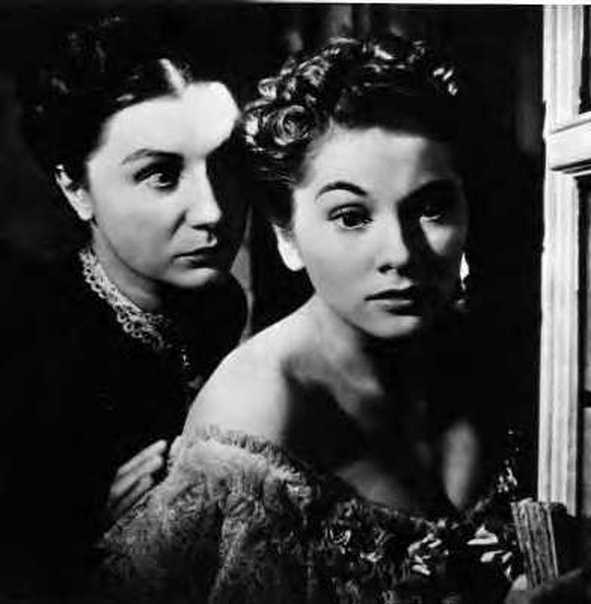|
The Breadcrumbs widget will appear here on the published site.
Becoming a Ghost For most people who start getting into film and trying to study it extensively, one of the first directors they tend get attached to is Alfred Hitchcock. I really got into Hitchcock my junior year of high school, and even did my extended essay on Hitchcock for my school's International Baccalaureate program. Hitchcock is a fascinating director, and has created some of the most memorable films of all time, such as Psycho, Vertigo, North by Northwest, Rear Window, and more. His personal life left touches on his films, while his off-screen habits made him one of the first director-celebrities. Despite his personality and impact on film history, Hitchcock never won a Best Director Oscar. In fact, only one film ever won Best Picture, and it's one of the few films that hardly fits into his autuer style. Rebecca is a 1940 David O. Selznick produced film based on the novel of the same name by Daphne du Maurier (whose novel Jamaica Inn and whose short story The Birds would also be adapted by Hitchcock.) The film is mostly Selznick's, but it is interesting to find the Hitchcock touches within. Rebecca follows a young woman played by Joan Fontaine. She meets a wealthy widower named Maxim de Winter (Laurence Olivier) and they soon get married. He takes her back to his ancestral home, Manderley, in Cornwall. There, she learns about Maxim's first wife, Rebecca, and how the staff, particularly the ghoulish Mrs. Danvers (Judith Anderson), adored Rebecca and continually compare the new wife to the former. As the film progresses, Fontaine's character begins to learn more about Maxim and Rebecca, particularly how Rebecca's death is not all that it seems. One of Hitchcock's directorial trademarks is the idea of women being trapped. Hitchcock did have some odd relationships with the women in his film (particularly Tippi Hedren), and many of his films feature blonde, female characters being in predicaments they can't escape from, such as Tippi Hedren's character in The Birds being trapped in a phone booth during a bird attack or Janet Leigh's character being trapped in a shower as she's stabbed to death in Psycho. While Rebecca was made to be as faithful to the source material as possible, there are some divergences that do show Hitchcock's touch. In this case, the woman trapped is Fontaine's character, and while she's not physically restricted, there is a mental hold on her. The character is never named in the film, usually just referred to as Mrs. de Winter or by other pet names. When she arrives in Manderley, she begins to be forced into the role of mistress of the house, even though someone from humble origins has little idea how to do that. Throughout the house are various mementos of Rebecca, from items monogrammed with Rebecca's initials to her old bedroom being kept as a shrine by Mrs. Danvers. For Fontaine's character, she's trapped in an idea. Everyone looks at her as an entity to be shaped and molded, or as something to be destroyed. Many shots of Fontaine's character show her as being very small and the rooms of Manderley engulfing her. She's a doll trapped in a doll house that she has no real control over, and it's something that causes her great distress. She's being given an identity that she wasn't ready to accept, and there's no real way for her to leave. This isn't helped by Maxim either. Olivier's character is like many of the men in Hitchcock's films. He's brooding, he's silent, and he often switches from kind and loving to angry and aggressive very easily. Maxim is someone who can have everything he wants due to his family name and his vast wealth. For most of the film, Maxim comes off as more of a jailer than a husband to his new bride. However, as the film progresses, Maxim comes off as very weak and manipulated. This is a man who is expected to have everything, but can't even control his life or do the things he wants without having awful memories stirred up. What Rebecca does really well is show how much one person can affect others after their death. Rebecca never appears on screen in the film. There are no flashbacks of her, no photographs, no paintings. All that remains are her possessions and the impact she had on those while living. Every person in Manderley is affected by Rebecca in some way, and it's pretty much only for the worst. In a way, Rebecca has become Manderley, and the R's found everywhere show that she's not going to be removed from the home so easily. Rebecca is a gothic romance film that is probably one of the best of its genre. While it doesn't have a lot of the elements that a Hitchcock film would normally have, it's still a very good film. If anything, there are still elements that make it Hitchcockian and can be seen as influential to later films in his oeuvre. While it's not as memorable as films like Psycho or Vertigo, it is still a very competently made film and a very good adaptation of its source material. One just has to be willing to return to Manderley in order to see the impact of Rebecca and Rebecca. #Real #Film #Review #FilmReview #Rebecca #AlfredHitchcock Visit our shop and subscribe. Sponsor us. Submit and become a contributor. Like us on Facebook and follow us on Twitter. CommentsComments are closed.
|
|









